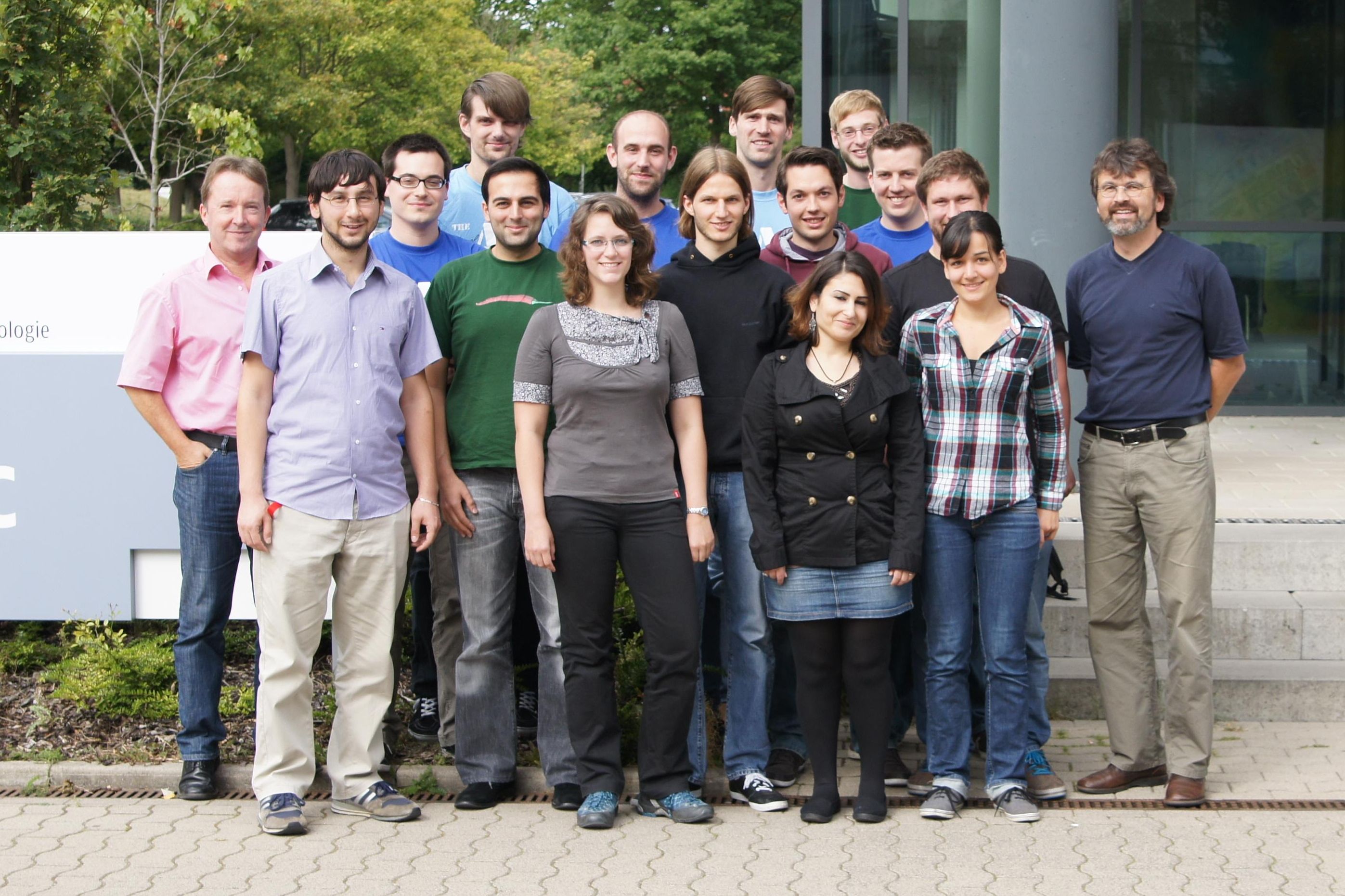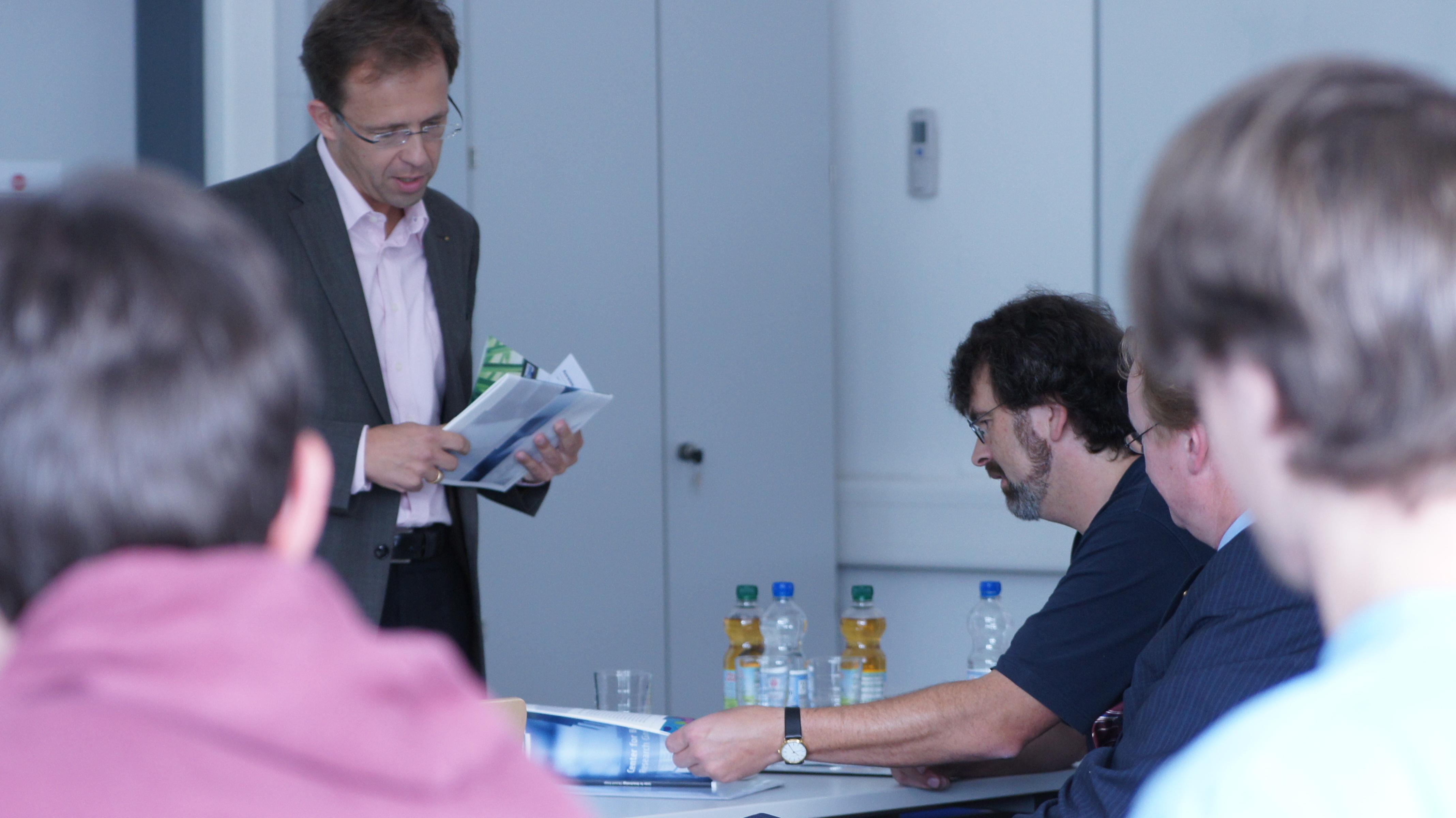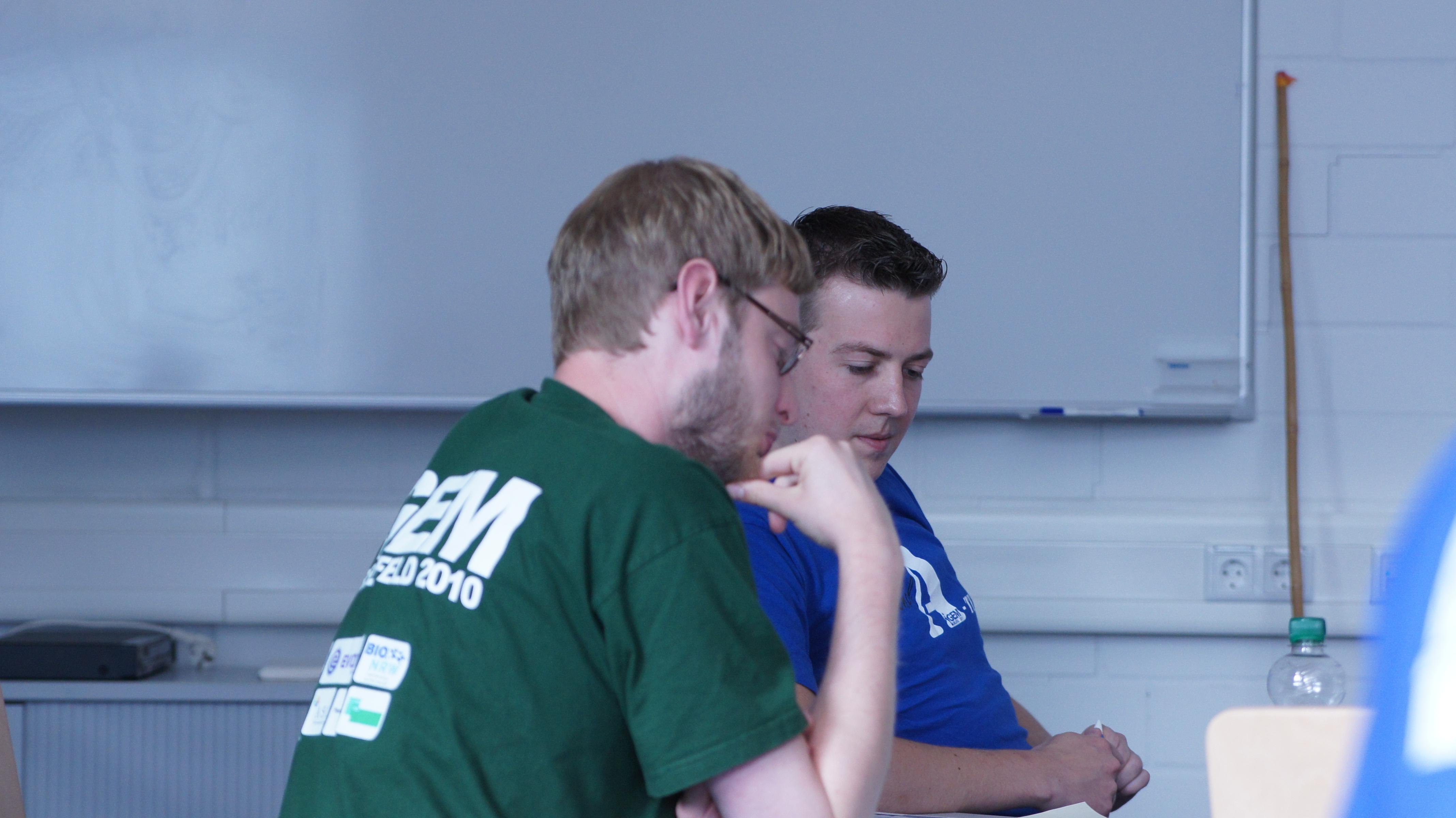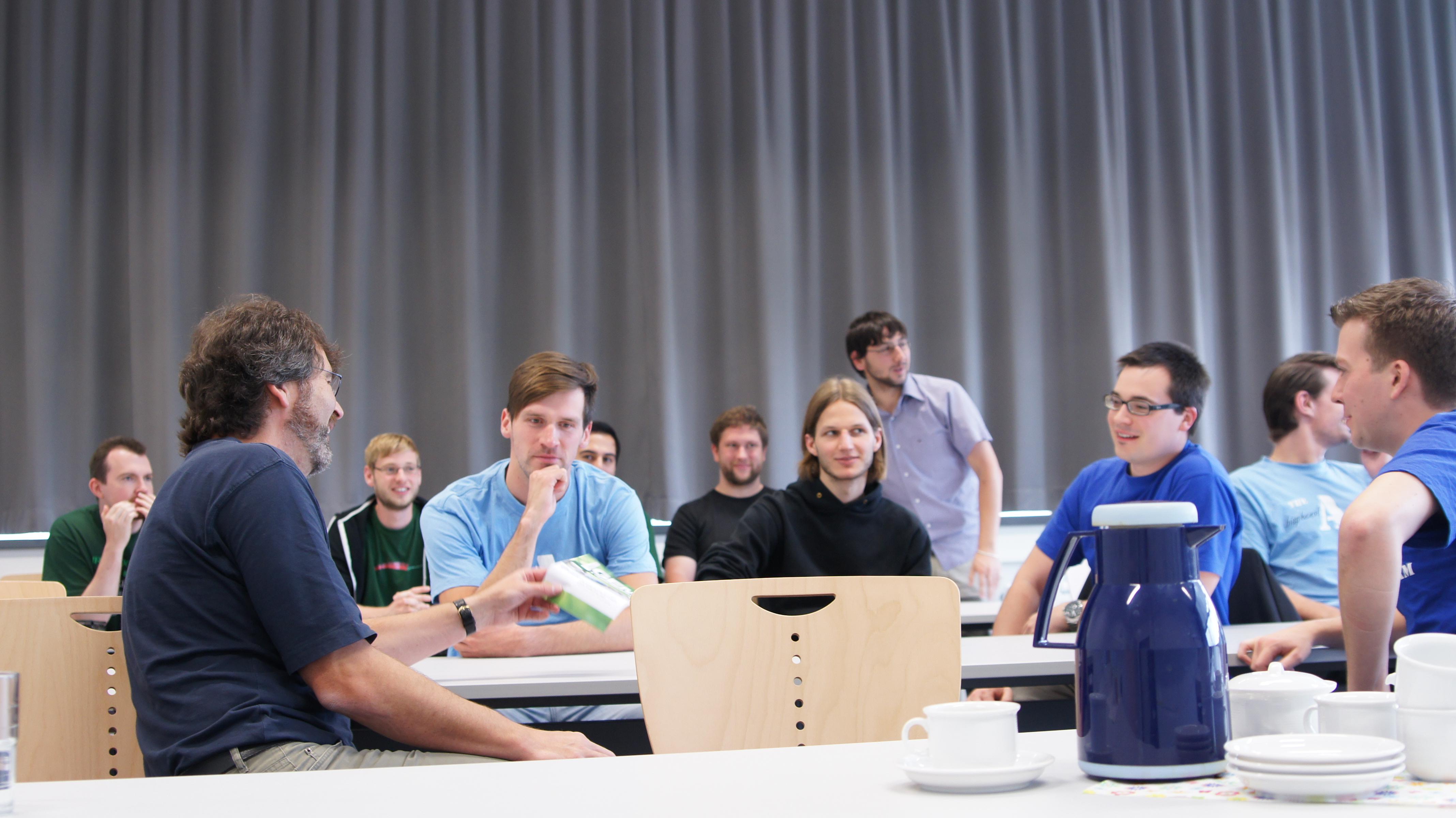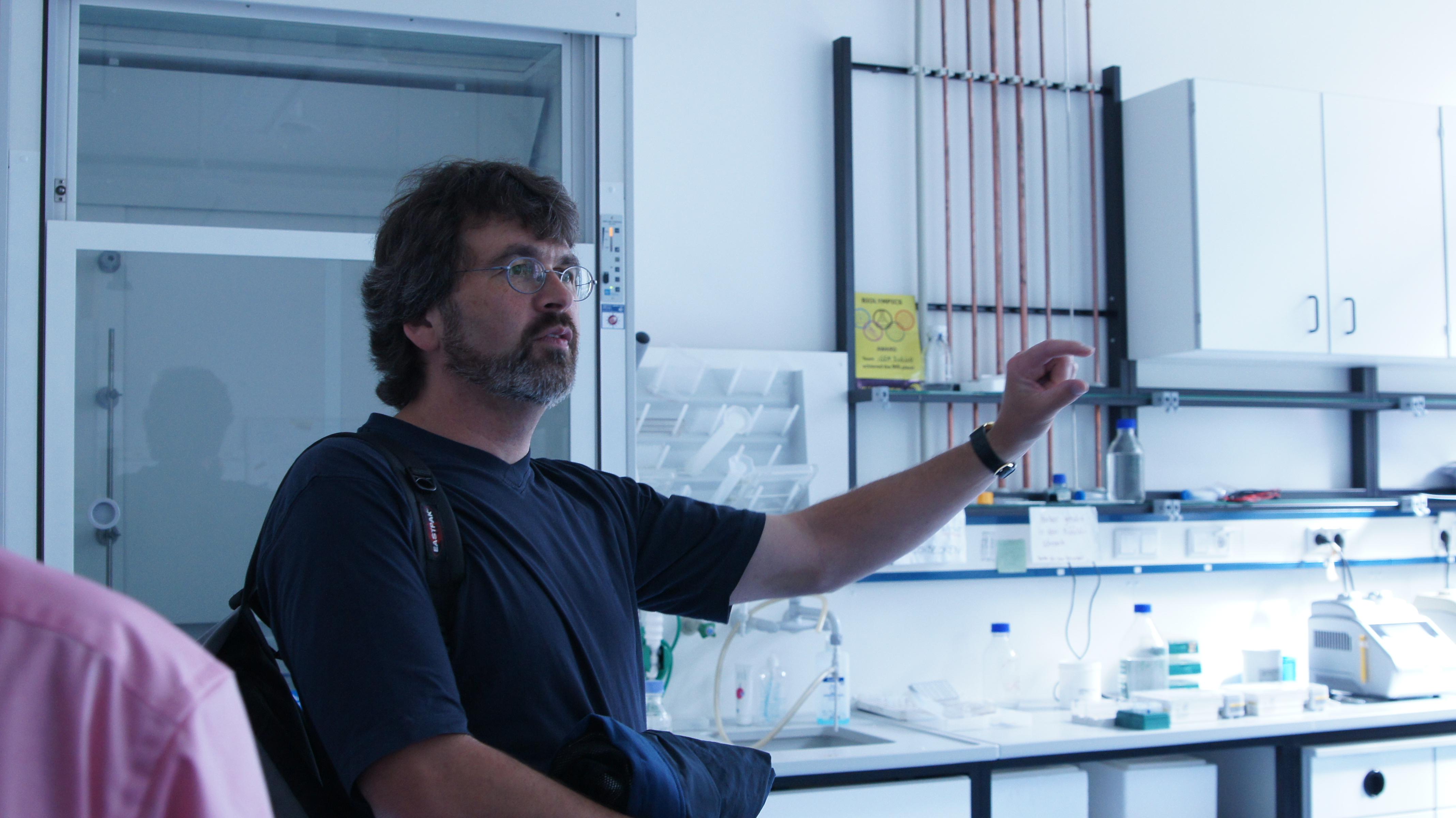Team:Bielefeld-Germany/Human Practices/Politics
From 2012.igem.org
Introduction
For our Human Practices approach we try to reflect multiple perspectives of view and therefore also the political situation and the willingness of politics to provide a situation, in which our project can be realized. So we invited René Röspel, a member of the german parliament, the “Bundestag” to talk about our project and to discuss about the situation of Synthetic Biology in Germany. Mr. Röspel studied biology and is a member of the Bundestag since 1998. He is or was member of several commissions of the Bundestag, for example the commission for education, research and technological impact assessment and the commission for environment, nature conservancy and reactor safety. Therefore he was the ideal partner to talk about hopes, hypes and fear of Synthetic Biology, about our project, its chances for realization, its advantages, risks and limits compared to conventional methods of waste water treatment.
The meeting started with a short introduction by Prof. Johannes Hellermann, prorector for quality development of the Bielefeld University and a presentation by Prof. Thomas Noll, scientific director of the CeBiTec (Center for Biotechnology of the Bielefeld University). Next we presented the past two and the current project of the iGEM Bielefeld teams.
In the following discussion the central questions were collected:
Questions
- How easily can bioethic principles be extended to commercial and large-scale applications like waste water treatment?
When it comes to bioethics opinions often differ. Questions about the benefit of bioethics principles arise. How can advantages and disadvantages be estimates and balanced? What is better in an ecological way? And how can economical interests be included in a bioethical consideration? We could agree that in the context of iGEM consequent and strict reflection of the development and the outcome of the project is needed. Cooperations with other sciences as there are humanities, the arts, and of course social sciences have to be deepened. The difference between innovation and realistic economic alternative has to be drawn, and the risks of intervention in complex natural systems have to be assessed by independent researchers. Reversibility must be given at any time.
Therefore accompanying ecological research and strict safety requirements are necessary if a process gets increased to a commercial application. Economical interests are important, too. Are new alternative problem solutions cost-effective and cost-efficient? How is the impact on industries? Those questions can of course not be solved in the context of iGEM, but need to be considered in commercial, large-scale production.
- Is it possible to run and implement a realistic technological impact assessment when it comes to large, open systems with many independent influencing factors?
- Is controllability given at any time and is it possible to reverse the process and the consequences completely, if necessary?
Influences in open systems often can’t be determined in an appropriate way, because many factors have an impact into the system and thus the influences of a single factor can hardly be described. Due to this difficulties risk assessment is of highest importance. Accompanying ecological research is essential and substance and material flow in complex natural systems have to be examined. As mentioned above Reversibility must be given at any time. Working with genetically modified organisms in an open system is always highly sensitive because the outcome of working with a biological, self reproducible system is hardly assessable.Risk assessment for biological systems is very difficult because unlike in mechanical engineering stress tests for engineered biological systems can’t be carried out. Also mechanical engineering is much easier to understand and the functional principle is, compared to living cells, relatively simple. Evaluation of interference is therefore easier and and can be better evaluated. Of course the remaining residual risk must be minimized but cannot be excluded.
Controllability can only be achieved by completely understanding the process and its consequences. This is, of course, one more argument for strong accompanying ecological researches. Natural systems have a high complexity, so complete understanding of every process can’t be guaranteed. Being aware of this fact, strong safety regulations have to monitor every change in the system. Also intensive research can observe weaknesses and unexpected changes before extending the system to commercial large-scale and maybe to open systems. In context of iGEM controllability is given through working in a closed system. If necessary, the process and its consequences can be reversed by stopping the experiments and sterilize all used materials.
| 55px | | | | | | | | | | |
 "
"






